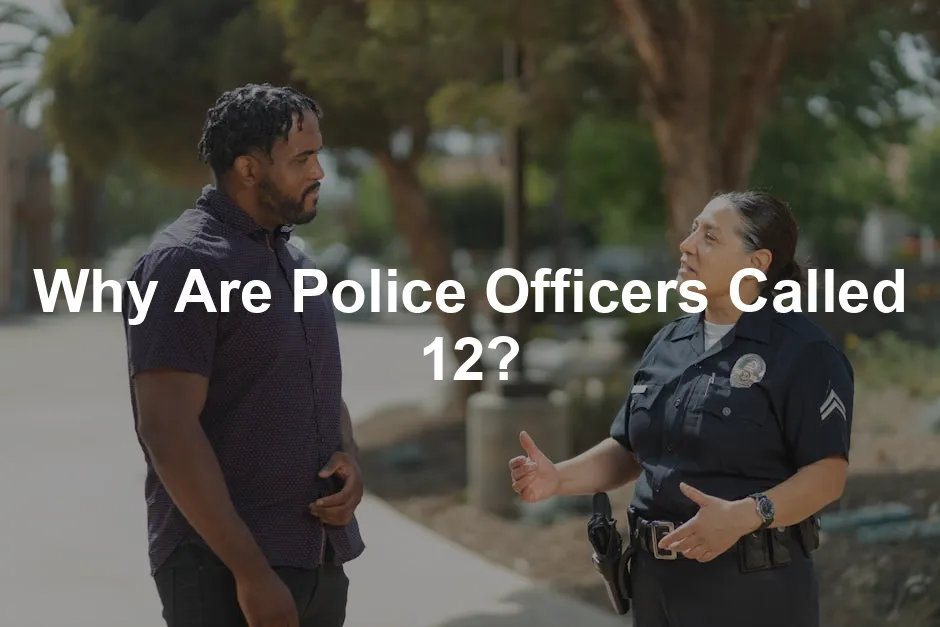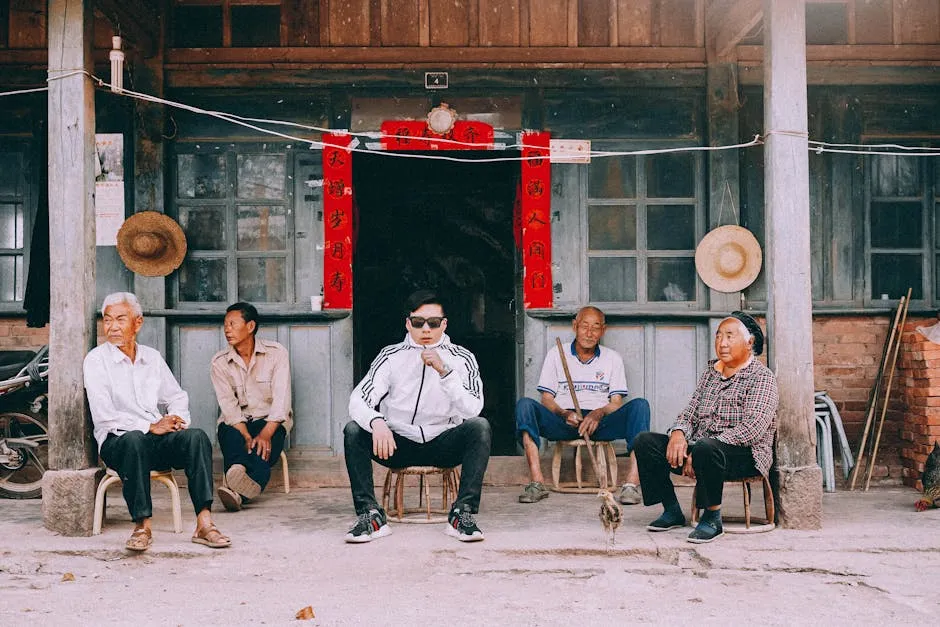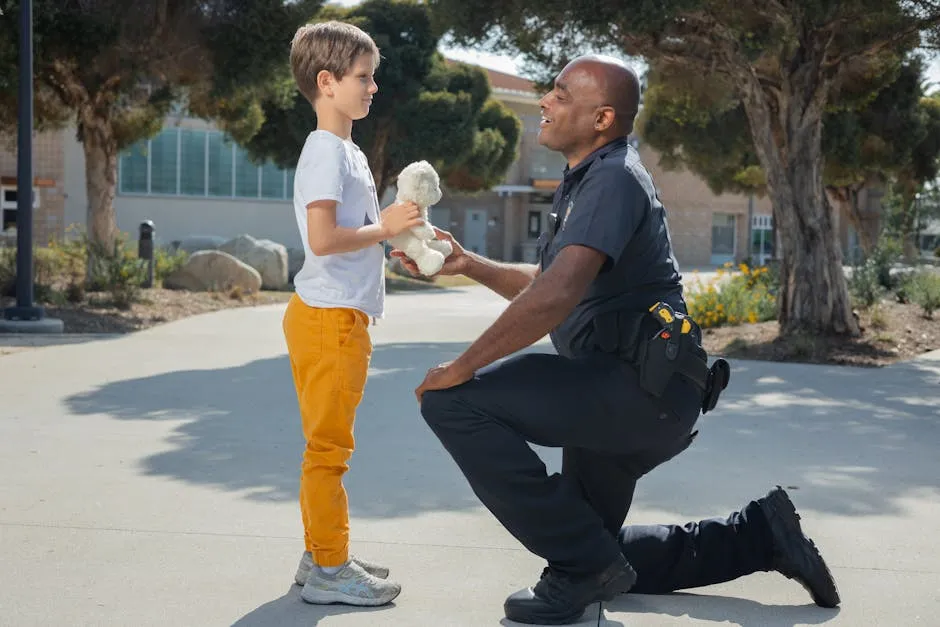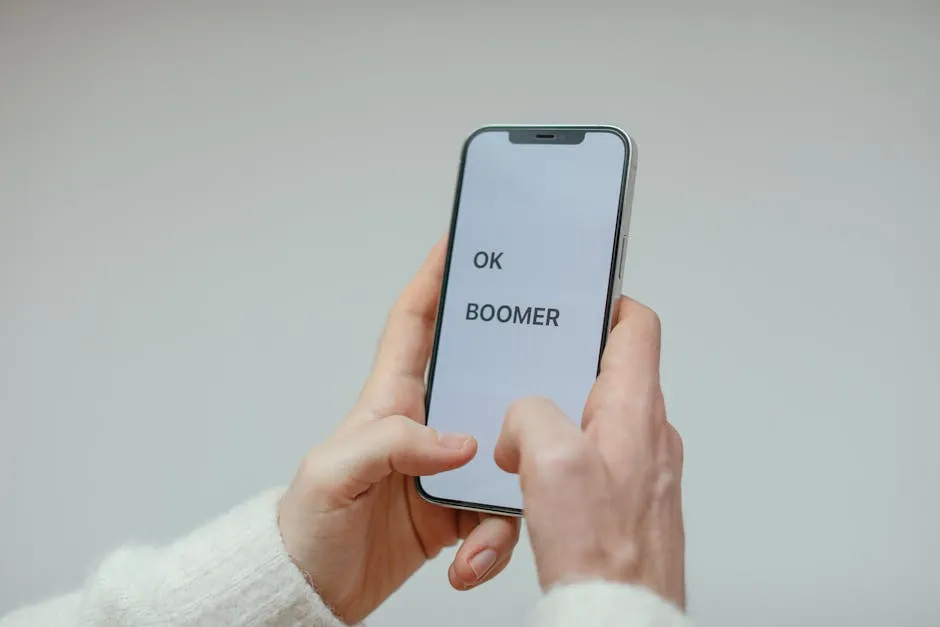
Why Are Police Officers Called 12?
Introduction
Have you ever wondered why police officers are often called “12”? This slang term has gained traction, especially within music and urban culture. It’s not just a random number; it carries significant meaning. In this article, we will explore the origins, cultural significance, and implications of the term “12.”
And speaking of culture, if you want to dive deeper into the world of urban slang, check out this Urban Slang Dictionary. It’s a goldmine of terms that’ll have you sounding like a local in no time!
Summary and Overview
Slang has a long history in relation to law enforcement. Terms evolve, reflecting cultural attitudes and community perceptions. The term “12” varies across regions and communities. In some areas, it is more commonly accepted than in others. Understanding these terms can improve community-police relations and foster dialogue. Let’s look deeper into the origins of “12.”
For those interested in the intersection of culture and law enforcement, a great read is the Community Policing Handbook. It dives into how slang like “12” can shape perceptions and interactions in the community.
The Origins of “12”
Early Use in African American Vernacular
The term “12” finds roots in African American Vernacular English (AAVE). It emerged during the late 1960s and early 1970s, symbolizing various meanings, including references to law enforcement. This usage reflects cultural dynamics and community experiences with policing. As slang evolves, so does its significance, making it essential to understand these origins in the context of community identity.
Police Radio Code Connection
Explanation of Police Code 10-12
Have you heard about police code 10-12? This code signals that law enforcement is present and that civilians are around. It’s a quick way for officers to alert each other about their surroundings. Over time, this code may have morphed into the slang term “12.”
The use of police codes began in the 1930s to standardize radio communication. They helped officers convey information swiftly and clearly. As slang evolved, terms like “12” emerged, making it easier for people to reference law enforcement without saying “police.” This connection illustrates how language can change over time while retaining its meaning.
Rhyming Slang Theory
Now, let’s consider another theory. Could “12” be a form of rhyming slang? Some suggest that it might be linked to other terms, showcasing linguistic play. Rhyming slang uses words or phrases that rhyme with the intended meaning, a playful twist on language.
For instance, in Cockney slang, “trouble and strife” refers to “wife.” Similar adaptations exist in various communities. “12” could represent a creative way to reference police, adding a layer of cultural expression. It’s fascinating to see how language reflects community experiences and identities.

Common Usage and Variations
Regional Differences
The term “12” isn’t universally accepted; its usage varies by region. In some areas, people might prefer terms like “the fuzz” or “5-0.” Each term carries its own connotation, reflecting local attitudes towards law enforcement.
In urban areas, “12” often serves as a shorthand to communicate police presence. It’s a quick alert to avoid any illegal activities or to steer clear of trouble. Understanding these regional differences helps us grasp the complexities of police terminology and community sentiment.

Pop Culture References
The term “12” has made its mark in various media. You might remember it from popular songs, films, and television shows. Hip-hop culture, in particular, has played a significant role in bringing this term into the mainstream. Artists like Gucci Mane and Migos have used “12” in their lyrics to express their feelings about law enforcement. This has resonated deeply with fans who share similar experiences.
Movies also reflect this usage. In the film Friday, Ice Cube warns his friends about the police by saying “12,” illustrating the term’s relevance in urban culture. Such references help to normalize the slang, making it part of everyday conversation. If you haven’t seen it yet, grab your copy of the “Friday” Movie DVD and enjoy a classic!
Hip-hop has a unique way of shaping language. By embracing terms like “12,” artists contribute to a cultural identity that often critiques authority. This influence has helped to solidify “12” as a common term for police in many communities.

Implications of Using “12”
Public Perception of Police
The term “12” reveals much about how society views law enforcement. For many, it reflects a distrust rooted in historical issues. This distrust can stem from personal experiences or community narratives surrounding police interactions. People might use the term to express frustration or resistance.
Using “12” in conversations signifies a broader sentiment towards authority. It indicates a separation between police and community members. This disconnect can complicate community-police relations, making it essential to understand the term’s implications.
Fostering open dialogue is vital for improving these relations. When communities feel heard and understood, trust can slowly be rebuilt. Understanding terms like “12” can pave the way for constructive conversations about policing.

Negative Connotations and Resistance
The term “12” can carry derogatory implications in specific contexts. It often symbolizes negative feelings towards law enforcement. For some, using “12” is a way to resist authority, reflecting disdain for policing methods. This creates a lexical space where resistance is voiced through language.
In many urban areas, referring to police as “12” can signify a rejection of their presence. This term embodies a form of protest against perceived injustices. Some community members may use it to assert their identity and resilience against oppression. If you’re looking to explore more about resistance and identity, check out Resistance and Identity Book.
Understanding these dynamics is crucial for navigating police-community interactions. While “12” can create a sense of unity among those who share similar experiences, it may also perpetuate divisions. Recognizing these nuances is the first step toward fostering better communication and understanding.

Alternatives to “12”
Other Slang Terms for Police
In addition to “12,” there are several other slang terms used to refer to police officers. Each carries its own connotation and cultural context.
- Five-O: This term stems from the television show Hawaii Five-O, which follows police officers in Hawaii. It’s often used in a more light-hearted manner, suggesting a casual acknowledgment of police presence. For fans of the show, why not grab the “Hawaii Five-O” Complete Series DVD to enjoy the adventures!
- The Fuzz: This slang term has been around since the 1960s. It conveys a somewhat dismissive attitude towards law enforcement, often associated with counterculture movements. You can even sport the term with the The Fuzz T-Shirt!
- Po-Po: A playful term that combines “police” into a more informal expression. It can be used affectionately or derisively, depending on the context.
- The Heat: This term is often used in discussions about law enforcement in a serious context. It implies urgency, suggesting immediate danger or police action. If you’re interested in action films, don’t miss “The Heat” Movie DVD.
These terms differ in usage based on regional dialects and community attitudes toward law enforcement. Understanding these distinctions is vital in grasping the complex relationship between police and the communities they serve.

The Future of the Term “12”
Evolution of Language and Slang
Language is always changing, and slang is no exception. Terms like “12” evolve as society’s perspectives shift. With ongoing discussions about policing, the term could take on new meanings or fade away entirely.
As younger generations engage with varying social issues, the language they use will likely reflect those changes. For instance, terms that signify resistance or critique could emerge as society demands accountability in law enforcement.
Slang often serves as a reflection of cultural sentiments. Therefore, how “12” is viewed in the future may depend on the broader societal attitudes towards police and community relations. As these dynamics evolve, so too will the language used to describe them. Understanding this evolution can help foster better communication and mutual respect between police and communities.

Conclusion
The term “12” traces its roots to African American Vernacular English and police radio codes. It symbolizes a complex relationship between communities and law enforcement. Understanding slang, such as “12,” is crucial in fostering better community-police relations. Misunderstandings arise when terms become derogatory or dismissive.
Constructive dialogue can help bridge gaps. By discussing these terms openly, we create opportunities for connection and trust. It’s essential to acknowledge varying perspectives on this phrase. Engaging in conversations about language can promote understanding and healing. If you’re interested in exploring more about the cultural significance of urban slang, consider a Urban Culture Coffee Table Book to further your insights!
To delve deeper into the cultural significance of the term “12,” you can read more about the origins and implications in this article: why are police called 12.
FAQs
What does “12” mean in relation to police?
The meaning of 12 refers to police officers, often used in urban slang. It indicates their presence in a given area.
Is calling police “12” considered disrespectful?
While “12” isn’t inherently disrespectful slang, context matters. It can be used negatively depending on the tone and situation.
What are other slang terms for police?
Alternative police slang includes terms like “Five-O,” “the fuzz,” and “po-po.” Each carries its own cultural meaning.
Where did the term “12” originate?
The origin of 12 slang is debated, with connections to police codes and popular culture, particularly the show *Adam-12*.
How has the term “12” been used in popular culture?
The term “12 in pop culture” frequently appears in hip-hop songs, reflecting perspectives on law enforcement and community dynamics.
Please let us know what you think about our content by leaving a comment down below!
Thank you for reading till here 🙂
All images from Pexels




